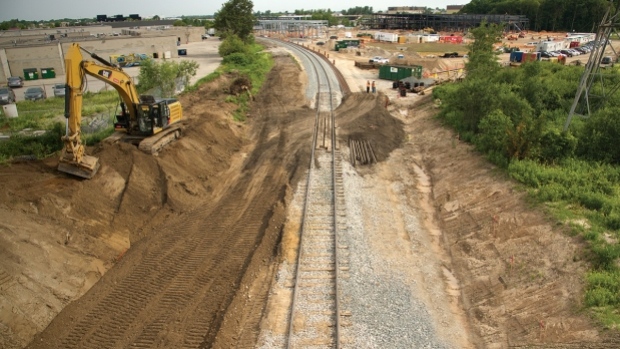Feb 12, 2018
Chinese firm’s ‘problematic history’ warrants security review of Aecon takeover: Expert
, BNN Bloomberg

The “problematic history” of China Communications Construction Company (CCCI) warrants a full national security review of its proposed $1.5-billion takeover of Canada’s Aecon Group, according to a national security expert.
“It’s a major transaction. [CCCI] is a very large, global Chinese state-owned enterprise, which has ties to, obviously, the Chinese government. It has a Communist Party cell embedded within its decision-making architecture,” Wesley Wark, national security expert at the University of Ottawa, told BNN in an interview Monday.
“It has a bit of a problematic history in terms of allegations of corruption in various global enterprises it’s been involved in,” he added. “It had also been involved some military construction for the Chinese government which was very controversial.”
In 2009, the World Bank banned CCCI from bidding on construction projects for eight years because of “fraudulent practices” involving a bid-rigging scandal in the Philippines.
Wark said the full-fledged security review of the Aecon deal provides the government with more time to dig into evidence around the case, examine available intelligence, and could involve contacting allies for information.
He said the nature of the deal and the key players involved make the security review critical.
“It is both the size of the transaction, the nature of the buyer, but also the position of the seller in terms, in particular, of activities in critical infrastructure the government will want to look at very closely.”
Since the deal was announced in October, it has faced some criticism and concern in light of CCCI’s track record and Aecon’s work in the nuclear and military sectors.
Aecon CEO John Beck said in a release on Friday he “fully supports” the Canadian government’s processes. He reiterated that Aecon “does not own any intellectual property related to nuclear energy; nor does it possess any other sensitive proprietary technology. Aecon offers construction and refurbishment support to clients in the nuclear industry."
Wark disagrees with company claims that it is not involved in critical military infrastructure projects.
“They seem to make to want to make a distinction somehow around sensitive military infrastructure, but there’s no real distinction in the real world,” Wark said, citing Aecon's involvement in infrastructure development projects for Canada’s Navy.
On Monday, Aecon announced it had extended the timeline of its deal with CCCI to March 30 from Feb. 23 after Prime Minister Justin Trudeau’s cabinet ordered a national security review of the deal.
If the sale goes through, it would see the Chinese firm acquire Aecon for $20.37 per share in cash.




